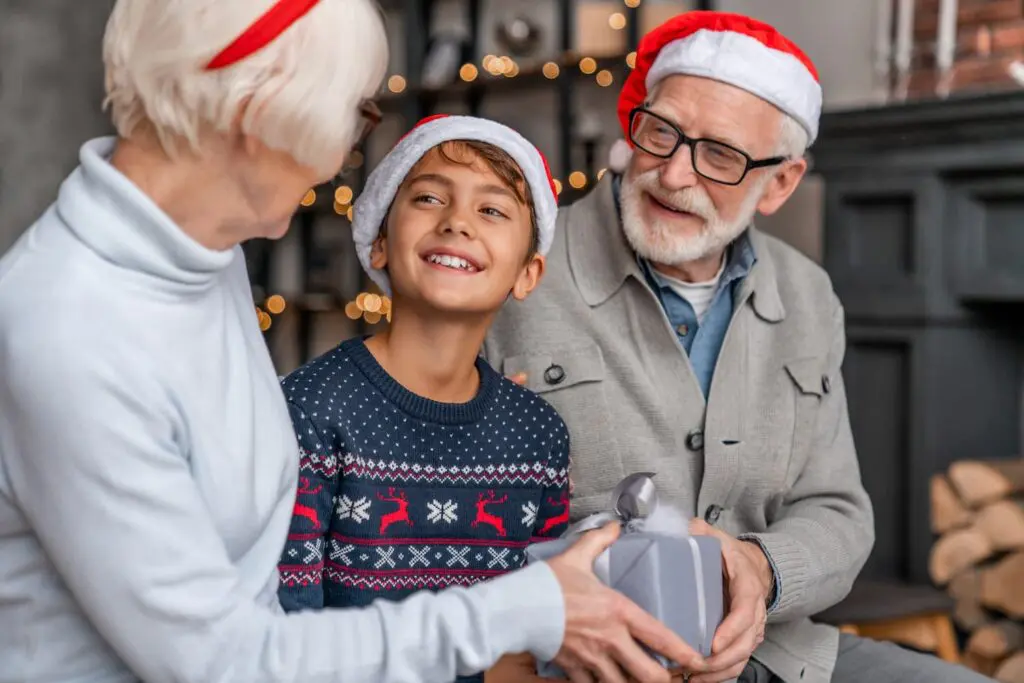The Holidays and Dementia
Preparing Grandchildren for Holiday Visits
“I wish I would’ve known how to speak to my grandmother,” Gowen said. “When she said things that didn’t add up, I didn’t know whether to correct her or just let it go. If I corrected her, I felt like I was hurting her feelings. If I didn’t, I felt like I was doing her a disservice.”
Isaac James shared similar challenges in the podcast as he described his experiences with his grandmother.
“Interacting with a grandparent who has Alzheimer’s or dementia is a life lesson no one expects to go through,” he said. “It’s confusing, especially for kids who’ve never been in that situation before.”
Navigating Challenging Moments
Grandchildren often struggle to reconcile their emotions while navigating the evolving dynamics of their relationship with a grandparent with dementia. This is true for young children, teenagers, college students and young adults alike.
Gowen recounted a heartbreaking moment when his grandmother, a central figure in his life, failed to recognize him for the first time.
“She was angry, and I asked, ‘Do you love me?’” he said. “She said, ‘No, I don’t love you,’ and that broke me. I was about 12 years old. It was so confusing and painful.”
James stressed the importance of talking with grandchildren to help them understand what’s happening when a grandparent is living with dementia.
Finding Joy Amid the Challenges
Despite the difficulties, James added, opportunities for connection and even joy are still present. He fondly recalled conversations with his grandmother that allowed them to bond in unexpected ways.
Gowen emphasized the importance of embracing and celebrating whatever his grandmother chose to share, even when she was clearly confused.
“We’d rejoice in anything my grandmother said, even if it didn’t make sense,” he said. “It was about treating her with respect and making her feel comfortable.”
Tips for Preparing Grandchildren for Holiday Visits
To create meaningful and positive experiences during holiday visits, consider these tips for preparing grandchildren:- Model open and honest communication. Explain the situation in an age-appropriate way. Emphasize that the grandparent’s behavior is caused by the disease, not the person, and reassure them that their grandparent still loves them deeply.
- Set realistic expectations. Let children know their grandparent may not recognize them or might repeat themselves. Encourage patience and understanding.
- Focus on connection, not correction. Teach grandchildren to meet their grandparent where they are, embracing the grandparent’s reality instead of trying to correct inaccuracies. Redirect conversations gently and find joy in shared moments.
- Encourage empathetic listening. Allow children to express their feelings and ask questions. Provide reassurance and acknowledge their emotions.
- Recognize resilience. Young people tend to live in the moment and adapt quickly. You may be surprised by a grandchild’s ability to connect and find joy even in challenging circumstances.




